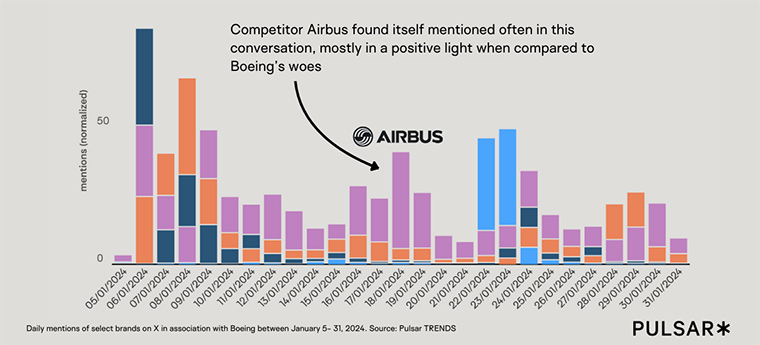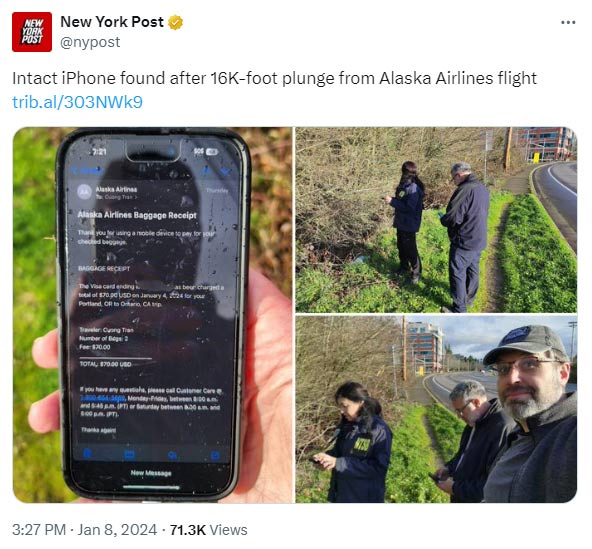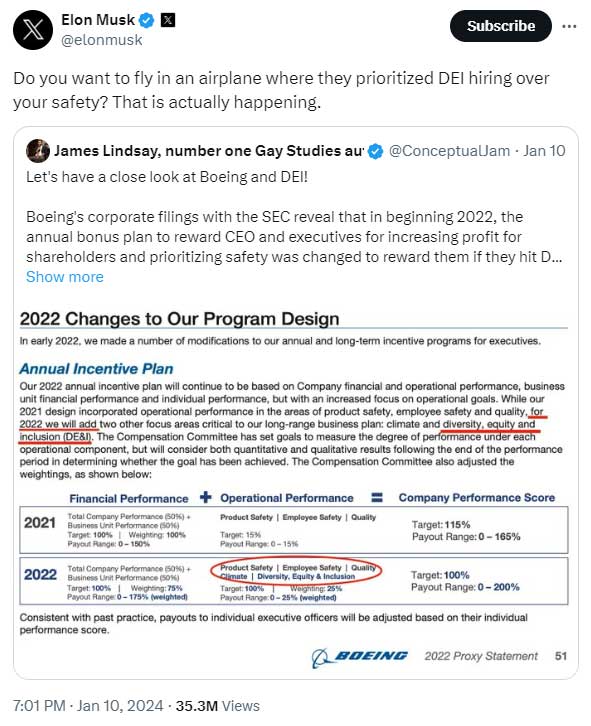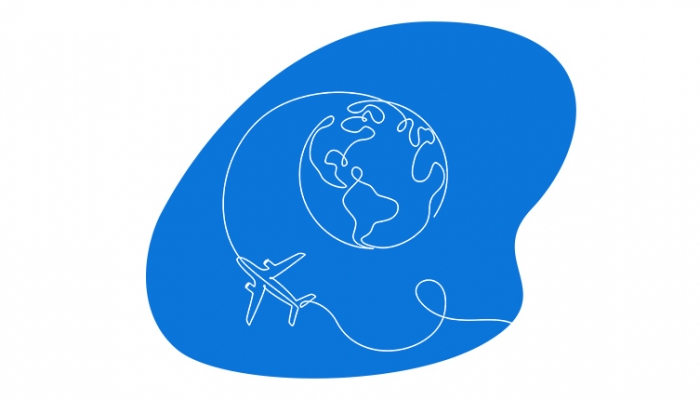When a crisis spreads to your brand: Free fall following the Boeing blowout
A robust plan can help protect organisations against future crises. But what happens when calamity hits another brand entirely, but your reputation is dragged into the fray?
This was the conundrum faced by brands including Airbus, Delta Air Lines, and even Tesla and Apple following a mid-air door blowout on an Alaska Airlines flight in January 2024. While Boeing’s 737 Max jet was at the centre of the story following the emergency landing, other names were pulled into the controversy as coverage and conversation grew.
Using X data from our sister audience intelligence platform Pulsar, we take a look at how the crisis spread from one brand to another.
Boeing’s brand blowout
Boeing was under fire quickly once the story was out and being shared on socials. An investigation by the Federal Aviation Administration ordered the grounding of over 170 Boeing 77 Max 9 airlines across the world pending inspections following the incident, and the Transportation Safety Board also began an investigation.
While Boeing quickly issued external and internal statements – promising publicly that ‘safety is our top priority’ and that ‘acknowledging our mistake’ would be the approach within the organisation – the impact of the crisis spread further. Press reports centred on share falls for Boeing and parts supplier Spirit AeroSystem, and the spotlight on Alaska Airlines only got brighter as footage of the cabin blowout went viral on TikTok.

Delta is dealt a hard blow
But Boeing and Alaska Airlines weren’t the only brands who would face the consequences of this crisis. Boeing customer Delta’s need to reassure flyers worried about a repeat incident faced setbacks early on. Additional malfunctions – including the loss of a Delta Boeing nose wheel while taxiing towards takeoff – would gain widespread attention.

Airbus gets airtime
Competitor Airbus became the subject of much positive online conversation, used as an easy contrast to Boeing.
Airbus would be highlighted as ‘competent’ in reporting from the New York Times – not the most glowing of descriptors, but certainly positive in comparison to its troubled rival. As summed up by Richard Aboulafia, the managing director of AeroDynamic Advisory in Washington, DC.
‘What used to be a duopoly has become two-thirds Airbus, one-third Boeing. A lot of people, whether investors, financiers or customers, are looking at Airbus and seeing a company run by competent people.
‘The contrast with Boeing is fairly profound.’

Apple takes a bite of the coverage
One seemingly unrelated brand that came out with a PR win was Apple. An intact and still-working iPhone found in the debris of the accident boosted online conversation around its products for the positive –

-Well, mainly for the positive:
‘The No. 1 comment I’ve been getting every place I’ve posted the picture was that, “My iPhone drops 5 feet, and it shatters and this phone lands after 16,000 feet and is just fine,”’ said Sean Bates, finder of the phone, in an interview with the Seattle Times.

Another PR tussle for Tesla
A brand that didn’t fare so well in relation to the story was Tesla. Unlike Airbus, this organisation wasn’t brought into the conversation organically, but instead inserted into it. By Tesla managing director himself, Elon Musk.

Musk doubled-down on this claim with ‘People will die due to DEI’ in a subsequent post, and the criticism started.
But not just criticism hit Tesla – its stocks also began to plummet amid the latest controversy surrounding the brand.

Fixing the fallout
Months following that fateful door blowout, positive share results for Boeing match that of its Airbus for 2023. However, this isn’t the last time Boeing, Alaska Airlines – and perhaps the other brands pulled into the crisis – will have questions to answer on the incident.
Three passengers who were onboard flight 1282 from Portland to Ontario, California, are now pursuing legal action against Boeing and Alaska Airlines. As of now, more difficult travels could be ahead for their PR teams.
To see this brand journey in video format, check out this LinkedIn post from Pulsar.
For more on how to handle a reputational crisis, check out our blog ‘Speak Up or Shut Down: The Value of Proactive PR in a Crisis’, featuring examples from the 2022 FIFA World Cup, UK airline strikes, and net zero targets in the Pharma industry.





Leave a Comment